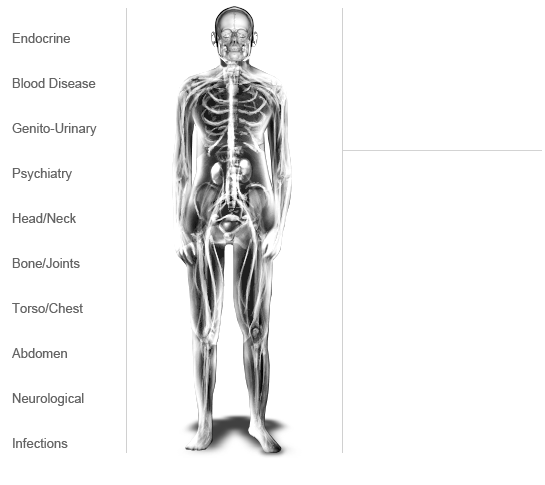
Search by Anatomy


Endocrine
The endocrine system regulates metabolism, growth, development and puberty, tissue function, and also plays a part in determining mood.
Blood
Blood is the body fluid that delivers necessary substances to the body's cells - such as nutrients and oxygen - and transports waste products away from those same cells.
Genito-Urinary
In anatomy, the genitourinary system is the organ system of all the reproductive organs of males and females and the urinary system.
Psychiatry
Psychiatry is a medical specialty which manages mental disorders in humans.
Head and Neck
The head comprises of the skull, brain, eyes, ears, nose, and mouth (all of which aid in mental and various sensory functions, such as sight, hearing, smell, and taste).
Bones/Joints
Bones form the parts of the skeleton. A joint is the location at which two or more bones make contact.
Torso
Torso is an anatomical term for the central upper part of the human body.
Abdomen
The abdomen (belly) constitutes the lower part of the body between the chest and pelvis.
Neurological
Neurology is a medical specialty dealing with diseases of the nervous system.
Infections
An infection is the growth of a germ, fungus or virus within the body, which may progress to disease.